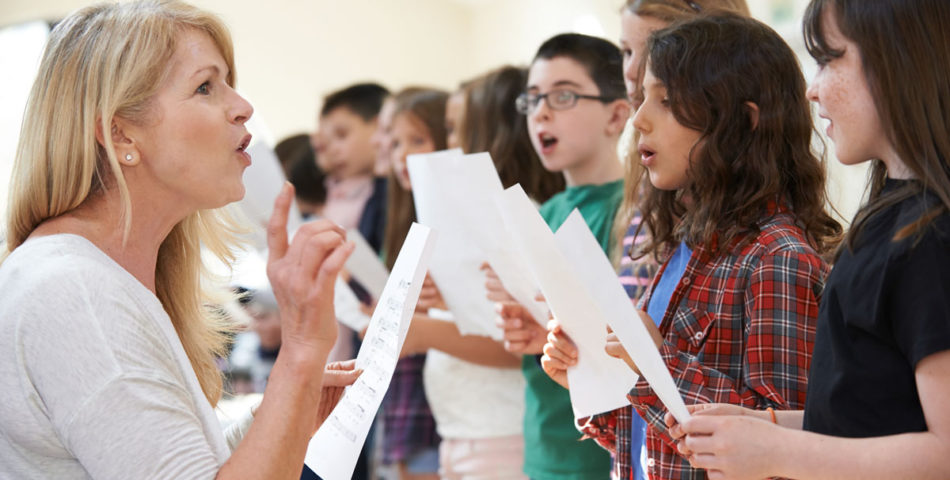How Group Lessons Enhance Musical Education

Group music lessons have social and musical benefits. Children working in a group learn how to interact and support one another. They also develop musical skills quickly.
Some people believe that group lessons help young musicians learn faster. How does this happen? Perhaps interacting helps children grasp and retain new information. Group classes are generally longer in duration than private lessons. It could be that more hours spent in class helps kids soak up information.
Kids learn from watching and doing. In a group, there are ample opportunities for kids to observe and perform. Exactly why and how group lessons enhance musical education may be up for debate, but teachers know from experience that group lessons are effective.
Here are some of the ways that group classes enrich a musical education:
Develops Confidence
Students develop confidence as they sing and play in front of peers and teachers. Performing during lessons is a safe, low-pressure way to become accustomed to playing for others.
During lessons, activities may alternate between group and individual performances. Playing regular mini-solos teaches a student that performing can be fun and stress-free. A child will also undoubtedly enjoy listening to peers. He may feel eager to show what he has learned.
Accomplishments, mastery and support all lead to a greater sense of self-assurance. Your child may or may not want to give a formal recital, but feeling at ease while all eyes are turned toward him is a valuable skill.
Teaches Teamwork
Music is often best when it’s shared with others. Ensemble performance improves specific musical skills and develops the ability to work with others.
When children play in an ensemble, they learn to give and take. A child learns to lead, to follow and to support. She must listen to others in the group, adapting her performance when necessary. She’ll develop these abilities through regular play and interaction with the group.
Her sense of rhythm improves as she strives to stay in sync with other musicians. Her ear develops as she hears melody, harmony, dynamics and pitch. If she’s off key or loses her place, she’ll hear that and learn to find her way again.
Motivates Learning
Most people feel motivated when they’re with like-minded people. Group classes provide an extra incentive to keep practicing and performing. Positive peer pressure and friendly competition can bring out the best in musicians of any age.
In groups, the collective energy can stimulate children to perform at a higher level. Your child may feel a bit more adrenaline each time he heads to class. He knows he’ll play with his friends and fellow students.
Keeps Learning Fun
Singing, dancing and playing music are fun. Group lessons make these activities even more enjoyable. Children love to watch others performing, and many like to take a turn at center stage.
The more a child enjoys her lessons, the more energy she’ll put into them. Private sessions and practice are valuable and have their place, but there’s nothing quite as rewarding as getting together with friends to do something you love.
Harmony Road Music develops the whole child through music, movement and creative exploration. Contact us to learn more about our curriculum.
